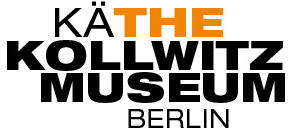READING
September 12, 2024
19.00
Admission fee 5,00 euros | reduced 3,00 euros
Salka-Valka Schallenberg, granddaughter of the Berlin painter Otto Nagel (1894-1967), reads from her publication “Erzähltes & Ungesagtes meiner Großeltern Walentina und Otto Nagel”
In 1919, Käthe Kollwitz discovered drawings by a “working-class artist, a very talented person” at an exhibition. A year later, the young, self-taught painter Otto Nagel and the well-known artist met again at a Kollwitz presentation at the Workers’ Art Exhibition and “(…) this is where the beautiful, friendly relationship began, which lasted until her death in 1945.” (Otto Nagel, Käthe Kollwitz, 1971, p. 40)
Otto Nagel, the self-taught artist from Wedding with his Berlin open-air studio, saw his artistic role models in Käthe Kollwitz, Hans Baluschek and Heinrich Zille. His many political activities prevented him from studying at Berlin art schools, so he took drawing courses at the city evening school and drew people in their surroundings outdoors. In the 1920s, like Käthe Kollwitz, he was involved in many campaigns against hunger, war and poverty. Nagel organised many exhibitions for International Workers’ Aid and took large exhibitions of Käthe Kollwitz’s work as far away as Russia. After 1933, difficult times began for both artists. Nevertheless, they remained in lively dialogue with each other until shortly before Käthe Kollwitz death in April 1945. Otto Nagel maintained contact with Kollwitz’ son Hans even after the division of Germany and, as President of the Academy of Arts East in the GDR, initiated many exhibitions of her work, wrote publications about her and prepared a catalogue raisonné of her hand drawings.
What was Otto Nagel like beyond being an artist and academy president? Half a century after the death of her grandfather, whom she never got to know, granddaughter Salka-Valka Schallenberg sets out on the trail of Otto Nagel and his Russian wife Walentina, known to everyone as Walli. She traces the stages of her grandparents’ lives, from the Weimar Republic to National Socialism and the early years in the GDR. In fictitious encounters, the author recounts what Otto and Walentina Nagel told and left unsaid, drawing on intensively researched archive material as well as notes, letters and publications by her grandparents and exploring their turbulent family history.
Bernd Schallenberg on acoustic guitar accompanies the reading with modern concert music.
Salka-Valka Schallenberg works as a freelance author and journalist and is a presenter and editor at kulturmdTV (Magdeburger Stadtfernsehen).
“Erzähltes & Ungesagtes” was published by EDITION Schallenberg, as was “Der Fall Otto Nagel. Kunstraub in der DDR”.

